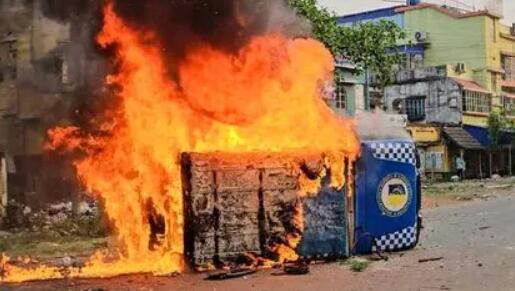A fact-finding committee constituted by the Calcutta High Court has implicated a leader of the ruling Trinamool Congress (TMC) in the communal violence that erupted in Murshidabad last month. The violence, which coincided with the passage of the Waqf Amendment Bill, was reported to have been targeted against members of the Hindu community, resulting in severe damage to life and property. The committee, comprising representatives from the National Human Rights Commission (NHRC), the West Bengal State Legal Services Authority, and the state’s Judicial Services, conducted visits to violence-hit areas such as Betbona, Samserganj, Hizaltala, and Shiulitala. Their findings were submitted to a division bench of the Calcutta High Court.
The report names Mehboob Alam, a local TMC councillor, as leading a group of attackers in Murshidabad. It also alleges that Amirul Islam, another political figure, directed mobs to properties that had not yet been vandalized, prompting further destruction. The report criticizes the local police for their complete inaction during the violence, noting that calls for help from residents of Betbona went unanswered despite the fact that the violence occurred within 300 metres of a police station. Moreover, an MLA was reportedly present at the scene but made no effort to intervene or prevent the violence.
The extent of the destruction was alarming. According to the report, 113 homes in Betbona were extensively damaged and rendered uninhabitable. Water connections were intentionally cut to prevent the residents from dousing the fires. Many of the victims, especially women, have since taken shelter with relatives due to displacement and fear of further attacks. On April 12, a Hindu man and his son were killed by their Muslim neighbours, a key trigger for the ensuing violence. In its wake, 29 shops were looted or burned in Ghoshpara, including grocery stores, textile outlets, hardware shops, and even a mall-like shopping complex. Several temples were also destroyed.
The committee concluded that the violence was both communal and orchestrated, with clear signs of political involvement and a glaring failure of law enforcement. The findings are expected to fuel political tensions in West Bengal and may lead the High Court to direct the state government to take strict action against those named in the report.
























